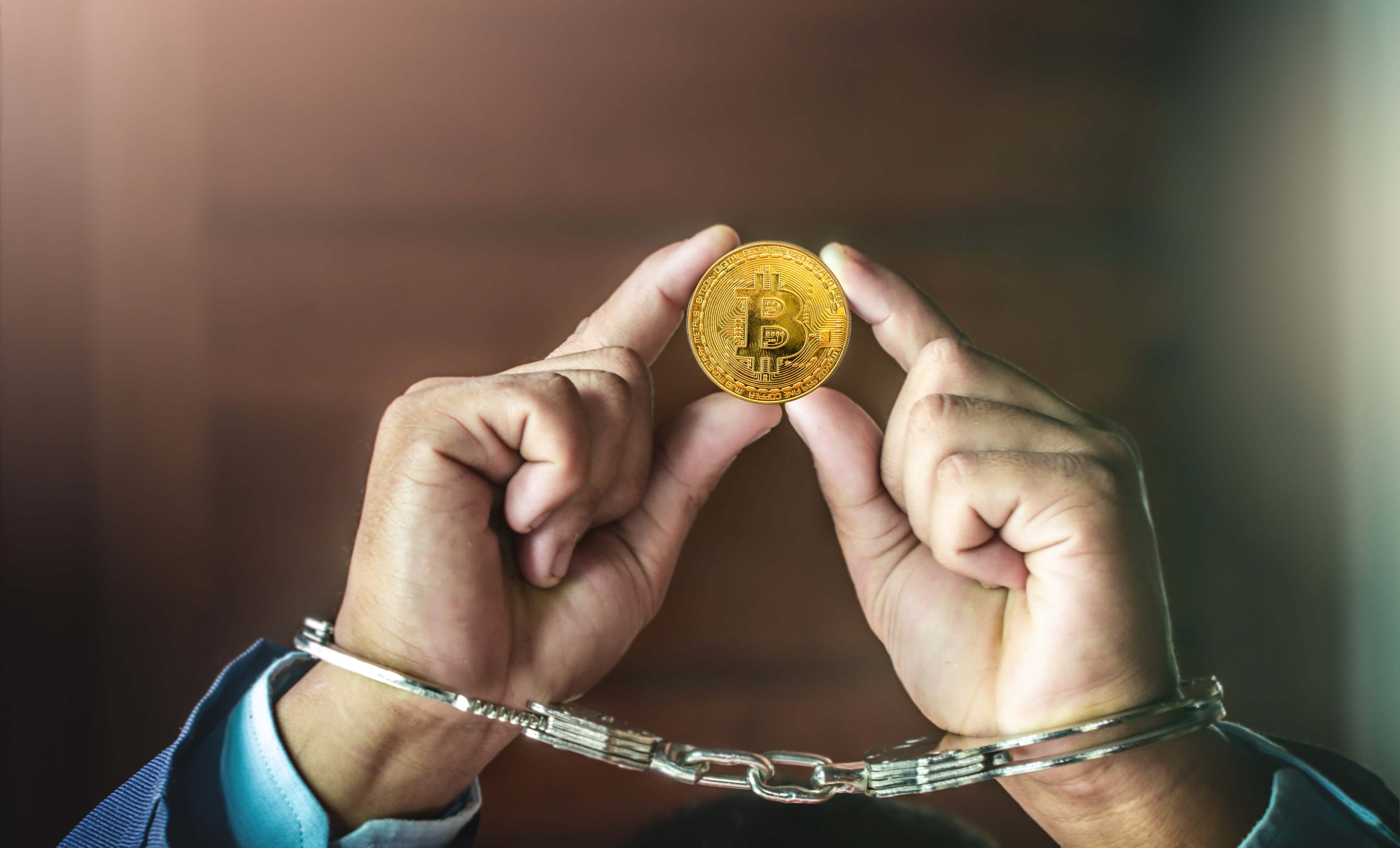Cryptocurrency, also called digital or virtual currency, has become a popular and innovative way to exchange value online and offline. A key feature of cryptocurrency is its ability to operate without intermediaries like banks or financial institutions. This feature has been identified as one of the critical aspects of cryptocurrency in promoting economic freedom.
Economic freedom is the capacity of individuals to make their own economic decisions without undue interference from the government or other entities. Cryptocurrency promotes economic freedom by providing a decentralized and trustless system for secure and efficient peer-to-peer transactions.
In this article, we will explore cryptocurrency's role in promoting economic freedom, including how it allows individuals to control their finances, bypass restrictions on traditional banking and offers financial services to the unbanked. In addition, we will see how the PlasBit card and crypto wallet are potent tools for enjoying the benefits of economic freedom stemming from the exciting developments in cryptocurrency and blockchain technology.
We will also look at some of the challenges and responsibilities accompanying cryptocurrency's rise in promoting economic freedom.
Cryptocurrency and Control of Personal Finances
One of cryptocurrency's key benefits is giving individuals control over their finances. Conventional banking systems require individuals to trust financial institutions with their money and follow strict regulations and procedures to access and manage their accounts.
Traditionally, private individuals held most of their funds in a bank account, typically in the local fiat currency, for example, the US Dollar ($) in the United States or the British Pound (£) in the United Kingdom. With this system, significant power and control rest with the bank as custodian and the government as a regulator. Assets and transactions can be monitored, scrutinized, or even seized and blocked.
On the other hand, cryptocurrency allows individuals to have complete control over their financial transactions. There is no need for a third party to approve or monitor transactions, and users can send and receive money without requiring a bank or other financial intermediary.
Using your PlasBit crypto wallet, you could, for example, receive payment in Litecoin (LTC), with the only information shared with the sender being your unique Litecoin address. However, while the transaction itself is viewable on the public ledger, the identity and personal details of the participants are not.
This level of control over personal finances is vital for individuals who may not have access to traditional banking services or do not trust financial institutions. It also allows individuals to conduct transactions without fear of government interference or censorship.

Overcoming Restrictions of Traditional Banking
Cryptocurrency also allows individuals to bypass restrictions on traditional banking systems. For example, many countries have strict regulations on the movement of money, making it difficult for individuals to conduct transactions with people in other countries or to access financial services.
Cryptocurrency provides a way for individuals to bypass these restrictions by using a decentralized system that is not subject to control by a government or financial institution. This allows individuals to conduct transactions with anyone, anywhere in the world, without requiring a bank or other financial intermediary.
For example, individuals in countries with strict capital controls can use cryptocurrency to move money outside of the country without fear of government interference or confiscation. In this way, cryptocurrencies have the potential to transform the way cross-border payments are completed. The traditional cross-border payment system is slow, costly, and subject to intermediaries and fees. With cryptocurrencies, cross-border payments can be conducted almost instantly, at a lower cost, and without intermediaries.
Cryptocurrencies, such as Bitcoin (BTC) and Ethereum (ETH), both available on PlasBit, offer increased security and privacy. The inherent feature of privacy makes them perfect for international transactions. This is combined with a lower risk of fraud and chargebacks since transactions are immutable and irreversible.
Offering Financial Services to the Unbanked
Another way cryptocurrency promotes economic freedom is by offering financial services to the unbanked. According to the World Bank, an estimated 1.7 billion people lack access to traditional banking services globally.
Cryptocurrency provides a way for these individuals to access financial services, such as sending and receiving money, making purchases, and accessing loans. Since cryptocurrency operates on a decentralized system, there is no need for a bank account or credit history to use these services.
This is particularly important for individuals in developing countries, where the services provided by traditional banking services may not be available or accessible. Cryptocurrency can provide a way for these individuals to access financial services and be part of the global economy.
An example is the role of cryptocurrency in promoting economic freedom in Africa. Many people in Africa have little to no access to traditional banking and financial services, preventing them from participating fully in the economy and limiting their ability to save and invest. Cryptocurrency is already providing significant benefits to the continent's unbanked population, and this trend is only likely to continue and grow as adoption spreads.
Cryptocurrency can also be used to make online purchases without a traditional credit card, which can be difficult or impossible in some countries. Therefore, the PlasBit card and crypto wallet are far more accessible solutions for those wanting to receive the benefits of cryptocurrency in promoting economic freedom.
PlasBit: Promoting Freedom of Labor
Cryptocurrency can potentially promote freedom of labor by providing a decentralized means of payment that is not subject to traditional banking and financial systems.
In many countries, traditional financial systems are heavily regulated, making it difficult for workers to receive payment for services if they do not have a conventional bank account or the formal economy does not recognize their work.
As cryptocurrency allows for peer-to-peer transactions without requiring intermediaries such as banks and financial institutions, individuals can receive payment for their work without going through traditional channels.
The borderless nature of cryptocurrencies also means that workers can receive payment from anywhere in the world without restrictions. This aspect of freedom of labor reflects the global role of cryptocurrency in promoting economic freedom. It is a core objective that PlasBit is working towards since freedom of labor is rightly viewed as a fundamental part of economic freedom.
In addition, cryptocurrencies can provide higher privacy and security for workers. This is especially relevant for those who work in industries where privacy and personal security are a worry. Freedom of labor is again promoted by allowing individuals to work without fear of retaliation or persecution.
Using cryptocurrency can provide a way for individuals to get paid for their work without the need for traditional financial systems. This helps to promote freedom of labor by allowing individuals to work and receive payment without being subject to traditional financial systems that may limit opportunities or restrict access to receiving funds.
There is also the potential for cryptocurrency to integrate with legacy systems in a helpful way for workers and businesses. For example, Paypal is a popular way in many countries to purchase items and to send and receive payments. Recognizing this, your PlasBit card can be linked to a PayPal account by being a debit card. This means the funds originating as cryptocurrency can be utilized with the Paypal system. This type of flexibility and integration with traditional systems is an essential feature of the role of cryptocurrency in promoting economic freedom.
Cryptocurrency in Promoting Economic Freedom: Choosing Your Currency
Above all, significant economic freedom provided by cryptocurrency is the ability to choose the currency in which you transact or store wealth.
The hidden risk of the traditional system of keeping local fiat currency in a bank account is sadly much more apparent today. Government monetary policy and behavior are a growing risk to the individual's finances in many places worldwide. For example, in Venezuela, people have witnessed their financial reserves rendered essentially worthless due to hyperinflation.
If all personal assets are kept in a single fiat currency, we become highly susceptible to market volatility, and when inflation strikes, any capital control measures can leave us powerless.
Traditional alternatives, such as storing wealth in gold and other precious metals, have always brought risks, such as the threat of theft. This is not to mention the difficulty of storing, moving, and transacting across national borders.
Providing a choice in the currency with which transactions are made and where wealth is stored is a vital role of cryptocurrency in promoting economic freedom. Moreover, with so many tokens to choose from, the goal of diversification is far easier to achieve than with traditional currencies.
For example, using your PlasBit card and wallet, you might make day-to-day crypto transactions using Litecoin (LTC) due to its speed and low fees. However, you could also build some regular savings in Bitcoin (BTC), Ethereum (ETH), and the stablecoin (USDC). In addition, you might diversify and expand your portfolio to include a range of other tokens, such as Cardano (ADA) or one of the many ERC-20 tokens available.
Challenges and Responsibilities
It is often said that greater freedom comes with greater responsibility, which is undoubtedly the case when considering the role of cryptocurrency in promoting economic freedom.
While cryptocurrency has the potential to promote economic freedom, there are also challenges and responsibilities associated with its use.
One such challenge is the learning curve for beginners to ensure their funds stay safe. The good news is that cryptocurrency transactions and wallets are more efficient and secure than traditional financial systems. Moreover, with features such as Two-Factor and Biometric authentication, it is easy for even the most novice user to keep funds safe as they learn about cryptocurrency.
PlasBit follows a mantra: 'Financial freedom is available to those who learn about it and work for it.' This learning is vital to effectively earn the benefits of economic freedom from using cryptocurrency. With such an emergent technology, there is a responsibility to stay educated and up-to-date, and the more each individual can do in this respect, the better.
The result is greater understanding, safe and effective usage, and genuine economic freedom from the use of cryptocurrency.







